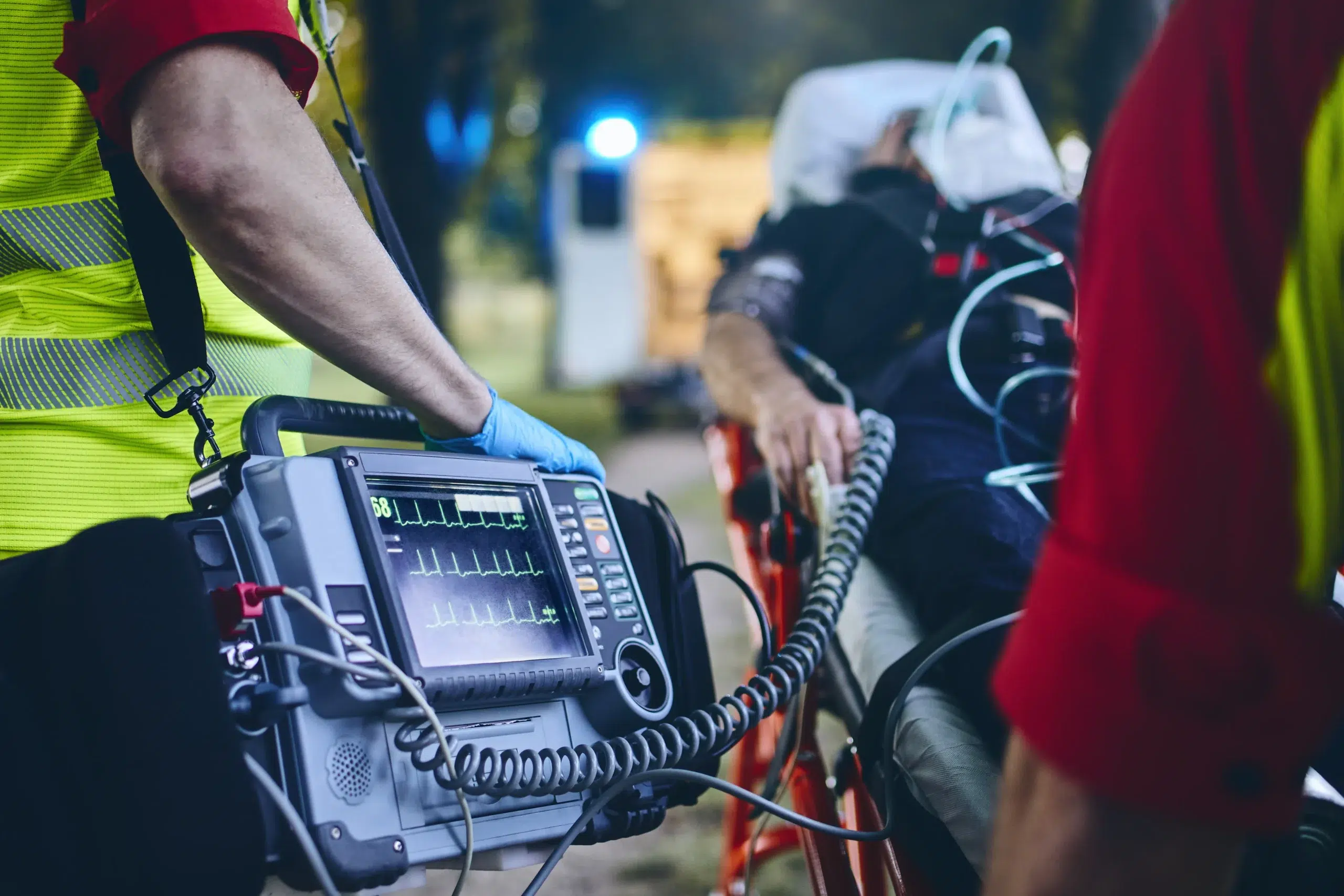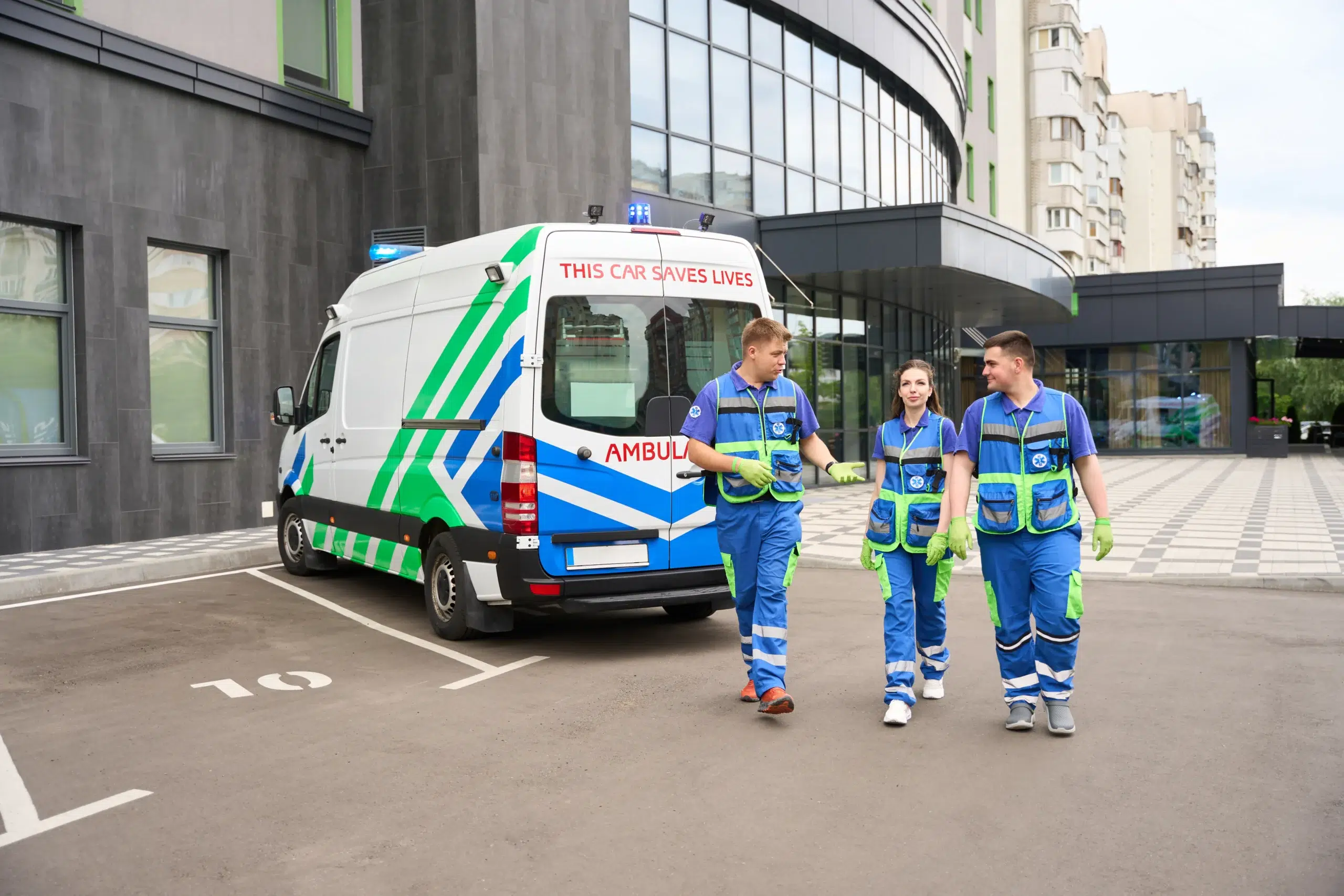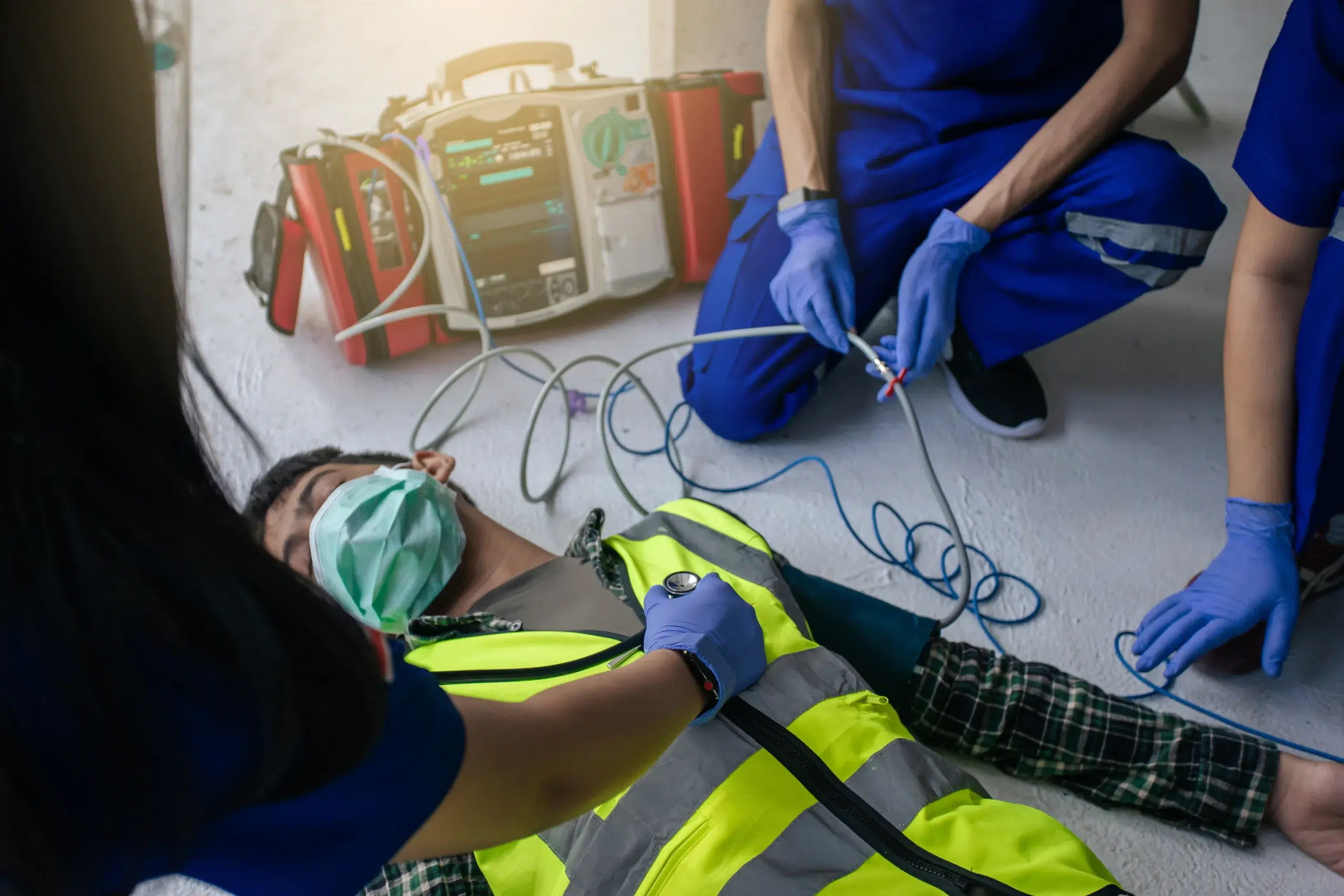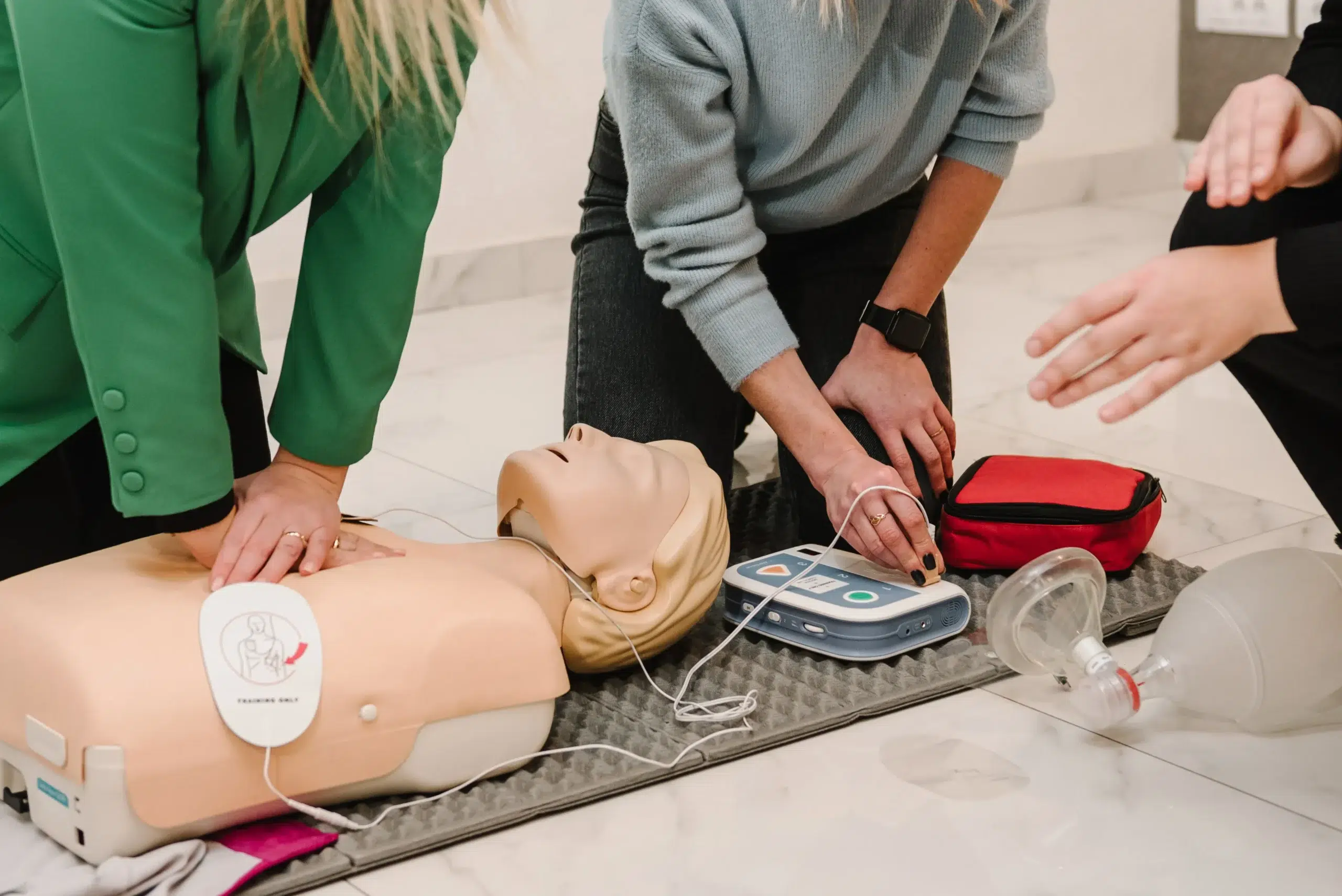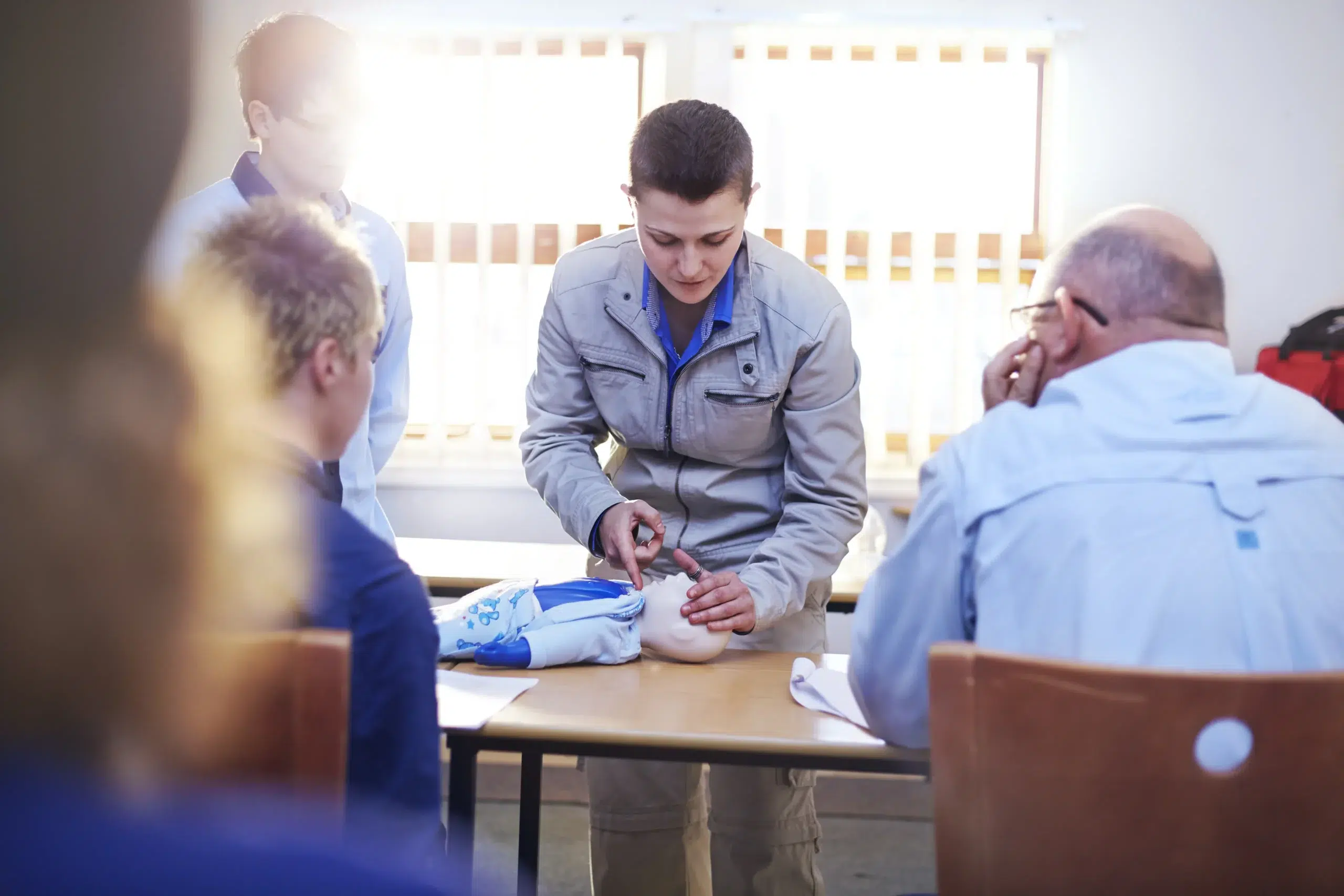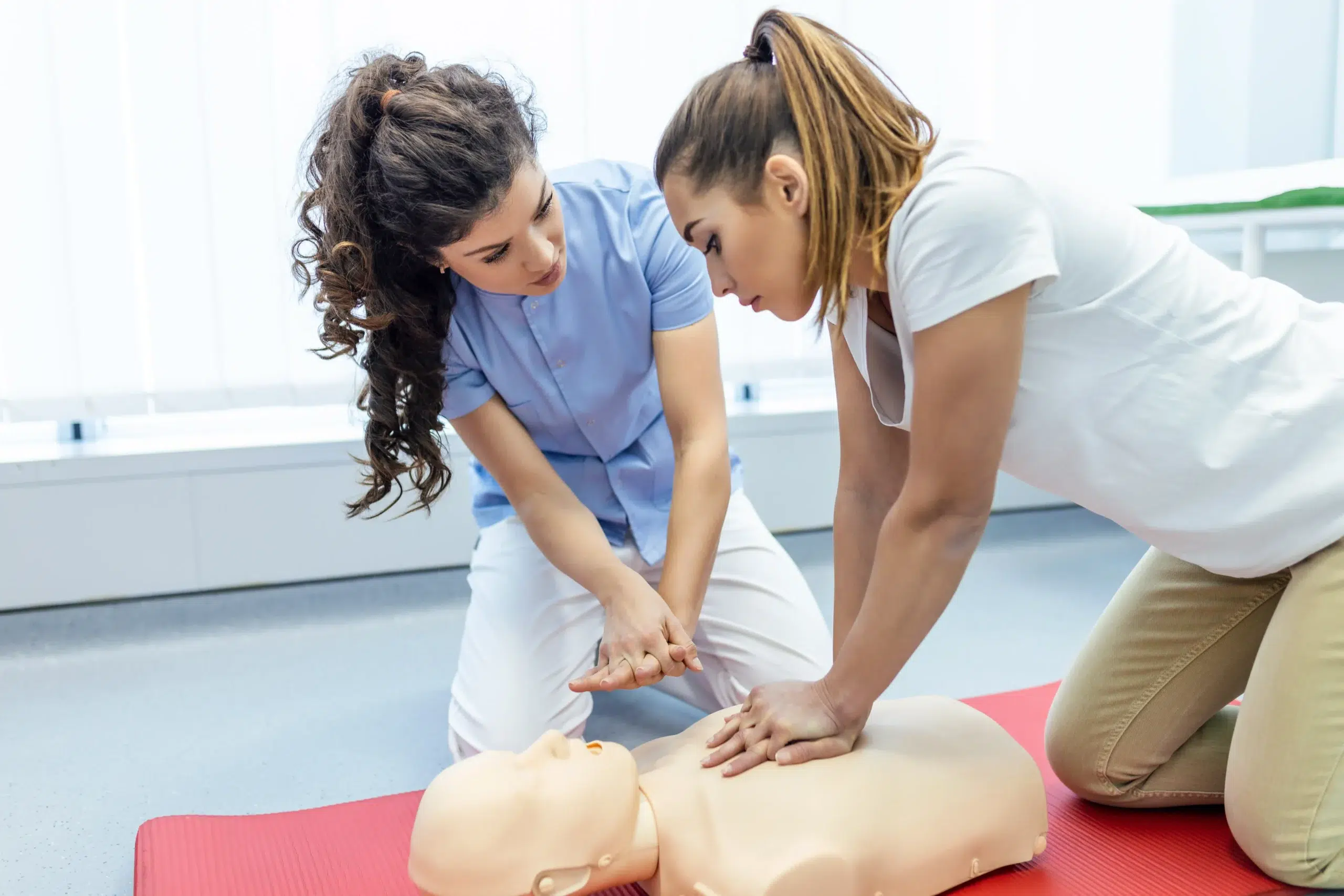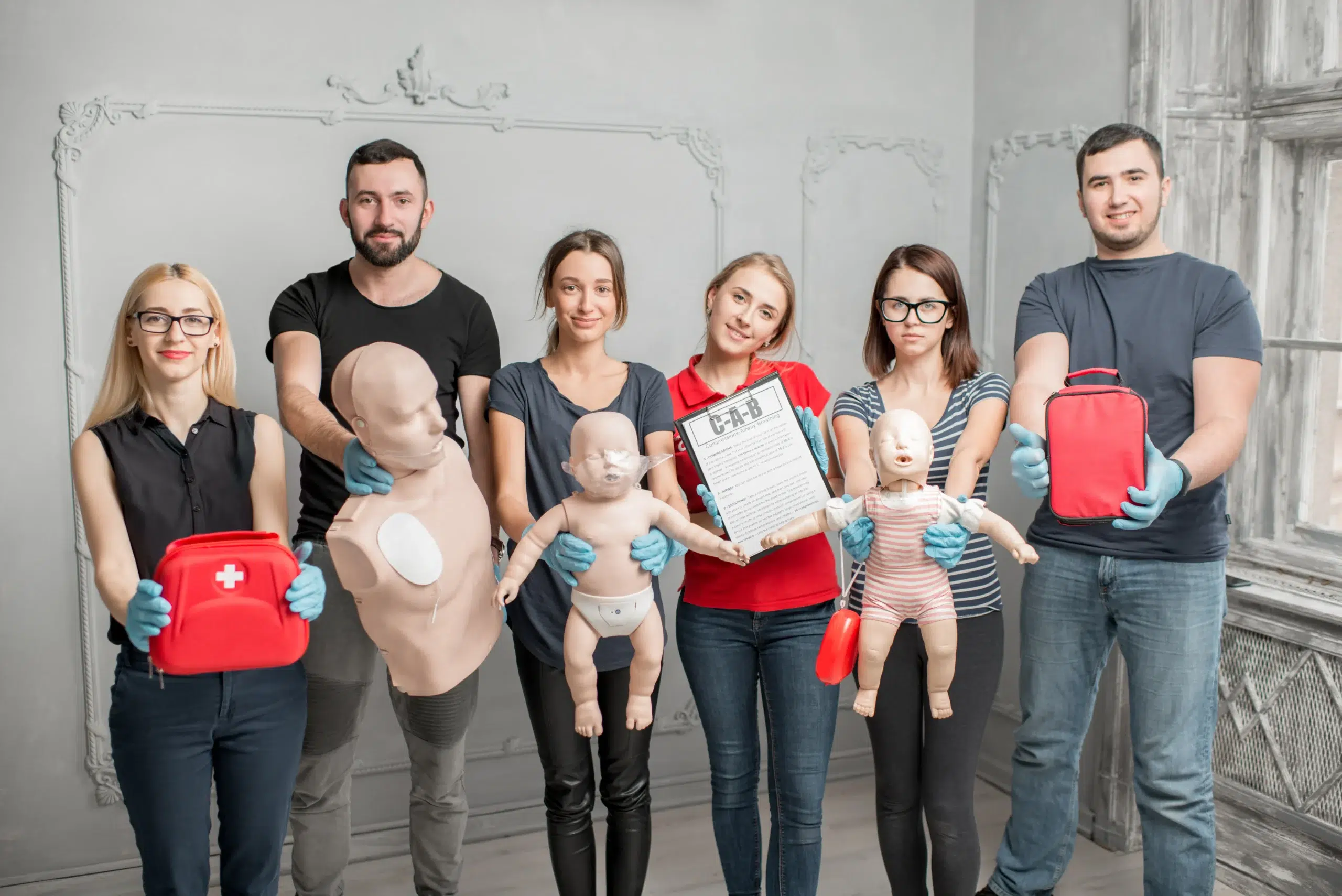Life is unpredictable. Emergencies can happen anytime, anywhere. Being equipped with the skills to perform CPR can give you the confidence to act quickly and potentially save a life. If you’re in Walnut Creek and looking for American Heart Association (AHA) certification, this guide will provide a comprehensive overview of your options. We’ll explore the different types of AHA courses available, from CPR and first aid to specialized training for healthcare providers, and discuss the importance of choosing a quality training program. We’ll also highlight Pleasant Hill CPR Classes, a reputable provider known for its experienced instructors, convenient location, and commitment to providing high-quality training. Let’s prepare you to handle emergencies with confidence and skill.
Key Takeaways
- Choose the right AHA certification: From basic first aid to advanced life support, find a course in Walnut Creek that matches your specific needs, whether you’re a healthcare provider, childcare professional, or community member. Consider factors like course content, schedule, and the instructor’s experience.
- Look for quality instruction and hands-on training: Effective CPR training involves hands-on practice and guidance from experienced, AHA-certified instructors. RQI programs and blended learning options can offer convenient and effective ways to develop your skills.
- Get CPR certified without breaking the bank: Explore options like group discounts, promotions, and flexible learning formats to make your training more affordable. Seek out providers who offer ongoing support and resources to help you maintain your skills and knowledge.
What are AHA Certification Options in Walnut Creek?
If you’re looking for American Heart Association (AHA) certification near Walnut Creek, you have several options. This area offers a variety of courses for both healthcare providers and the general public. Let’s explore the types of AHA certifications available, how the process works, and why these certifications are important, especially in healthcare.
CPR and First-Aid Class Types
Walnut Creek offers a range of AHA courses, including CPR, First Aid, Basic Life Support (BLS), Advanced Cardiovascular Life Support (ACLS), and Pediatric Advanced Life Support (PALS). These courses cover essential life-saving skills, from basic CPR for the community to advanced procedures for healthcare professionals. You can find these courses through various providers, including Pleasant Hill CPR Classes, which offer a low price guarantee.
Certification Process and Validity
After completing your chosen course and passing the skills assessment, you’ll receive an AHA certification card, valid for two years. Staying current with your certification ensures you’re always prepared to respond effectively in an emergency. For medical professionals, the RQI program offers a streamlined way to maintain your certifications.
Why AHA Certification Matters for Healthcare Professionals
For healthcare providers, holding a current AHA certification is often a job requirement. These certifications demonstrate a commitment to high standards of patient care. BLS certification, for example, equips healthcare professionals with the skills to recognize life-threatening emergencies, perform CPR, use an AED, and relieve choking. These skills are crucial for providing timely and effective care in critical situations. AHA certifications are nationally recognized, assuring your qualifications wherever you practice.
Compare AHA Training Providers in Walnut Creek
Finding the right CPR certification course can feel overwhelming with so many options. To help you out, let’s look at a few AHA Training Providers in the Walnut Creek area and what they offer.
Pleasant Hill CPR Classes
Pleasant Hill CPR Classes offers a comprehensive range of American Heart Association (AHA) courses, including BLS, ACLS, PALS, and CPR/First Aid. They emphasize small class sizes and flexible scheduling, including weekend and evening options. What sets them apart is their focus on RQI programs, a unique, efficient certification process specifically designed for healthcare professionals. They also offer a low price guarantee. If convenience and value are important to you, Pleasant Hill CPR Classes is worth checking out. Visit their website to learn more.
CPR Training Center
The CPR Training Center of Concord specializes in group and corporate on-site training. This makes them a convenient choice for businesses in Walnut Creek looking to certify multiple employees at once. They provide a full suite of AHA-certified courses, including CPR, First Aid, ACLS, PALS, and NRP. Their tailored approach ensures training programs meet the specific needs of different organizations. You can find more information about their services on their website.
Walnut Creek CPR Classes
Safety Training Seminars, also known as Walnut Creek CPR Classes, offers a broad selection of AHA-certified courses, including CPR, BLS, ACLS, PALS, and First Aid. Their extended daily class hours (8 am to 10 pm) provide flexibility for those with busy schedules. This makes it easier for working professionals and students to fit training into their routines. Learn more about their classes on their website.
Compare Prices and Value
Cost is always a factor when choosing a training program. While pricing can vary, ACLS classes in Walnut Creek generally average around $290. This typically covers the online portion, skills testing, and your certification card. Some providers offer discounted rates for healthcare professionals, sometimes starting as low as $60, with an additional $20 for the card. It’s always a good idea to compare prices and what’s included before making a decision. Yelp can be a helpful resource for comparing local CPR class prices and reading reviews. Remember, the cheapest option isn’t always the best; consider the overall value, including instructor experience and course content.
Instructor Qualifications and Training Quality
When your health or the health of a loved one is on the line, you want to know the person providing CPR is highly qualified. Choosing the right CPR certification course means understanding what makes an instructor truly prepared to teach these lifesaving skills. Here’s what to look for in a quality CPR training program:
AHA Instructor Requirements
The American Heart Association (AHA) sets rigorous standards for its instructors. These certified professionals have significant experience in emergency medical care, ensuring participants receive training from knowledgeable experts. This commitment to instructor quality means you’ll learn the most up-to-date CPR techniques and guidelines, giving you the confidence to act in a real-life emergency. Pleasant Hill CPR classes are taught by AHA-certified instructors who meet these high standards. Learn more about our BLS certification.
Hands-On Learning
Knowing the steps for CPR is one thing, but performing it effectively requires practice. Quality CPR training emphasizes hands-on learning, providing ample opportunities to hone your skills. The AHA’s Resuscitation Quality Improvement (RQI) program, offered by Pleasant Hill CPR Classes, uses innovative technology like voice-assisted manikins (VAM) to guide your practice and provide real-time feedback. This blended learning program combines online coursework with in-person skills sessions, allowing you to learn at your own pace and then refine your technique under the guidance of an expert instructor.
Instructor Expertise
The best CPR instructors bring a wealth of real-world experience to the classroom. At Pleasant Hill CPR Classes, our instructors include firefighters, EMTs, paramedics, and other trained emergency personnel. This diverse background allows them to share practical insights and answer your questions from a place of firsthand knowledge. Whether you’re a healthcare professional maintaining your certification or a concerned parent wanting to learn CPR, our instructors can tailor their teaching to your specific needs. Reach out to learn more about our instructor team and find the right class for you.
Find Value: Discounts and Flexible Learning
Getting CPR certified shouldn’t break the bank. Thankfully, there are smart ways to find both value and convenience when it comes to your training. Whether you’re looking for group discounts, online learning options, or special promotions, you’ve got choices.
Group Class Benefits and Corporate Training
Team training offers a great way to save. Many providers, including Pleasant Hill CPR Classes, offer discounts for group classes and on-site corporate training. This can be a win-win for businesses wanting to certify their employees—it’s cost-effective and allows teams to learn together, building camaraderie and shared knowledge. Plus, coordinating training is much simpler.
Promotions and Packages
Keep an eye out for deals. Many CPR training centers run promotions and offer packages that can make training more affordable. Pleasant Hill CPR Classes, for example, has a low price guarantee, ensuring you get the best possible value. Checking for current deals is always a smart move.
Online and In-Person Courses
Balancing work, family, and other commitments can make finding time for in-person training tough. Thankfully, blended learning options, combining online coursework with in-person skills sessions, offer more flexibility. The American Heart Association’s RQI program is a good example. You can complete the online portion at your own pace, then schedule a short skills session to get your certification.
RQI Programs: A Modern Approach to Certification
RQI programs offer a streamlined and efficient path to certification, especially for busy healthcare professionals. These programs typically involve a few hours of self-paced online learning followed by a hands-on skills check using high-tech manikins. This approach allows you to fit training into your busy schedule without sacrificing quality or comprehensive instruction. Pleasant Hill CPR Classes offers convenient RQI courses for those seeking this effective option.
Choose the Right AHA Course
Knowing which CPR class is right for you depends on your job and individual needs. Pleasant Hill CPR Classes offers a range of American Heart Association (AHA) courses to meet a variety of requirements, from basic first aid to advanced life support. Let’s break down the options so you can find the perfect fit.
Healthcare Provider Courses (BLS, ACLS, PALS)
Healthcare providers need up-to-date certifications to deliver high-quality patient care. These courses equip professionals with the skills to handle life-threatening emergencies. Our BLS course covers CPR, AED use, and choking relief. For advanced certifications, we offer ACLS (Advanced Cardiovascular Life Support) and PALS (Pediatric Advanced Life Support), essential for those working in critical care settings. Pleasant Hill CPR Classes also specializes in the RQI program, a convenient and efficient way for medical professionals to maintain their BLS, ACLS, and PALS certifications.
Courses for the General Public
Even without a healthcare background, learning CPR and first aid can empower you to respond effectively in emergencies. Our CPR and first-aid classes cover essential life-saving techniques, including CPR for all ages, AED use, and basic first aid for common injuries like burns and bleeding. These skills can make a real difference in situations involving family, friends, or even strangers.
Specialized Training (NRP, EMSA Child Care)
Certain professions require specialized training. We offer the Neonatal Resuscitation Program (NRP) for healthcare professionals involved in newborn care. Additionally, our EMSA Child Care Health and Safety course meets the specific requirements for childcare providers in California. These specialized courses provide targeted training to ensure you’re prepared for the unique challenges of your profession.
CPR and First-Aid Facts
Knowing the facts about CPR and first aid can empower you to act confidently in an emergency. This section clarifies common misconceptions, certification renewal processes, and the importance of ongoing training.
Debunking Myths
It’s important to separate fact from fiction when it comes to CPR. Many people believe that CPR always involves mouth-to-mouth resuscitation, but hands-only CPR is often sufficient and can be just as effective. Another common misconception is that CPR is only for medical professionals. The truth is, anyone can learn CPR and potentially save a life. For more information on debunking common CPR myths, check out these helpful resources.
Renew Your Certification
CPR certifications don’t last forever. Staying current with the latest guidelines and techniques is crucial for providing effective care. The American Heart Association RQI program offers a streamlined way for healthcare professionals to renew their BLS, ACLS, and PALS certifications. This program focuses on continuous quality improvement and ensures you’re always prepared to respond to emergencies.
AHA Protocol Updates
The American Heart Association (AHA) regularly updates its protocols to reflect the latest scientific evidence and best practices. Staying informed about these updates is essential for maintaining your certification and providing high-quality care. For example, the AHA requires a score of 84% or higher to pass their certification exams.
Ongoing Support and Resources
Learning CPR is just the first step. Continued practice and access to resources are key for maintaining your skills and confidence. Pleasant Hill CPR Classes offers a variety of courses and resources to help you stay up-to-date on the latest techniques and best practices. You can also find additional information on AHA training.
Related Articles
- ACLS Courses in Walnut Creek: A Complete Guide
- American Heart Association (AHA) Training in Concord, CA
- Your Guide to CPR & First Aid in Walnut Creek – Pleasant Hill CPR Classes
- BLS Certification in Walnut Creek: A Complete Guide
Frequently Asked Questions
How do I choose the right CPR class for me?
The best class for you depends on your specific needs. If you’re a healthcare provider, you’ll likely need BLS, ACLS, or PALS certification. For those outside of healthcare, a standard CPR and first-aid course is a great option. Consider your current job requirements, desired skill level, and any specialized certifications you might need, like NRP for those working with newborns. Pleasant Hill CPR Classes offers a range of courses to fit various needs, so you can find one that aligns with your goals.
What does the AHA certification process involve?
AHA certification typically involves completing a course, either in person or through a blended learning format, and passing a skills test. The course covers essential CPR techniques, AED use, and other life-saving procedures. After successfully completing the course and skills assessment, you’ll receive an AHA certification card, valid for two years.
What is the RQI program, and how does it differ from traditional CPR certification?
RQI, or Resuscitation Quality Improvement, is a program designed specifically for healthcare professionals. It offers a more flexible and efficient way to maintain your BLS, ACLS, and PALS certifications. Instead of attending a traditional renewal course every two years, RQI uses a blended learning approach with online modules and shorter, more frequent skills sessions. This allows healthcare providers to stay up-to-date on their certifications while minimizing time away from their work.
Are there discounts available for CPR classes?
Yes, many CPR training providers offer discounts, especially for group classes and corporate training. Check with specific providers like Pleasant Hill CPR Classes for their current promotions and group rates. It’s always a good idea to compare pricing and what’s included in each course before making a decision.
How can I stay up-to-date on the latest CPR guidelines and best practices after I get certified?
Staying current is essential for providing effective care. Resources like the American Heart Association website offer updates on the latest guidelines. Many CPR training providers also offer refresher courses or continuing education opportunities. Consider subscribing to newsletters or following relevant organizations on social media to stay informed about changes in CPR protocols and best practices.
